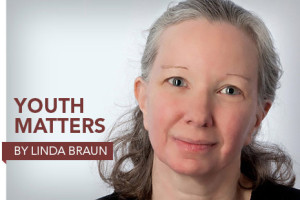
As I write this, I’m preparing for my annual trip with a couple of dear friends to Las Vegas. This is more nice meal/Cirque du Soleil than bottle service/strip show; we’re the dignified types—though one does get to see a great many more aspects of the human condition there than in other places, for sure. (Always great to see the clever ads for LVPL in the airport!)
As I’m getting ready, what would I be doing besides thumbing through the latest Ithaka survey of academic library directors? There’s much familiar here, whether in the academic world or not: shifting and competing priorities, constrained resources, constituencies and stakeholders with varying visions and levels of support, the need for thoughtful planning and strategy toward a nonetheless uncertain set of futures. You know the drill.
One of the survey’s central questions asked about priorities of a couple of dozen functions. Much here is expected: for example, high ratings across the board for physical space for students, ILL, reference instruction, etc. Some items get more support from doctoral institutions (subject specialist librarians, special collections, open access initiatives). Others are more consistent but of lower overall priority (instructional design services, teaching centers).
Two central findings jumped out at me. There was almost complete agreement from institutions of all types on their role in information literacy education for undergraduates. This was great to see, and those kinds of services will benefit students for years to come. At the same time, though, the authors noted in the baccalaureate and master’s institutions “an especially steep decline in the share of respondents invested in the research support role.”
Well. I get that, I suppose. I wouldn’t be surprised if there was indeed diminishing demand for that sort of thing—or perhaps flat demand in the face of lots of other things to do and fewer resources to do them. So I very much respect the position of colleagues who are perceiving that shift.
Still, when I read that, a little piece of me sank inside. I got into this profession largely based on an interest in reference and research services, and partially because I teach and help to prepare new professionals in that area. So, yes, I’ll declare my partiality to these roles and functions. But I’ll also declare that I think it’s a damned shame that it’s perceived that demand is down for research support.
I looked through the list of functions that directors were asked about, and I see several that seem to me like things that we do uniquely, or better than anybody else would: copyright advice and guidance, preservation of materials including digital ones, and—quite a ways down the list of priorities—learning management systems and managing faculty datasets.
If not us in these roles, then who? And how? And for that matter, if not those roles for us, then who are we, and who are we becoming? While respecting the honesty and contexts of these opinions, I can also say I don’t like them or their implications or what outcomes may flow from moving away from roles and functions that in no small part centrally define what our professional domain is, has been, and can be going forward toward whatever futures lie ahead. Otherwise, this feels too much like tempting fate.
Speaking of tempting fate, a note for those new to Vegas: Enjoy yourselves. Everything will take longer and cost more than you expect, and in return you get an eye-popping show almost anywhere you look. And bear in mind, these are the people you serve (or perhaps not) … but that’s another story.
JOSEPH JANES is associate professor and chair of the Information School at the University of Washington.


